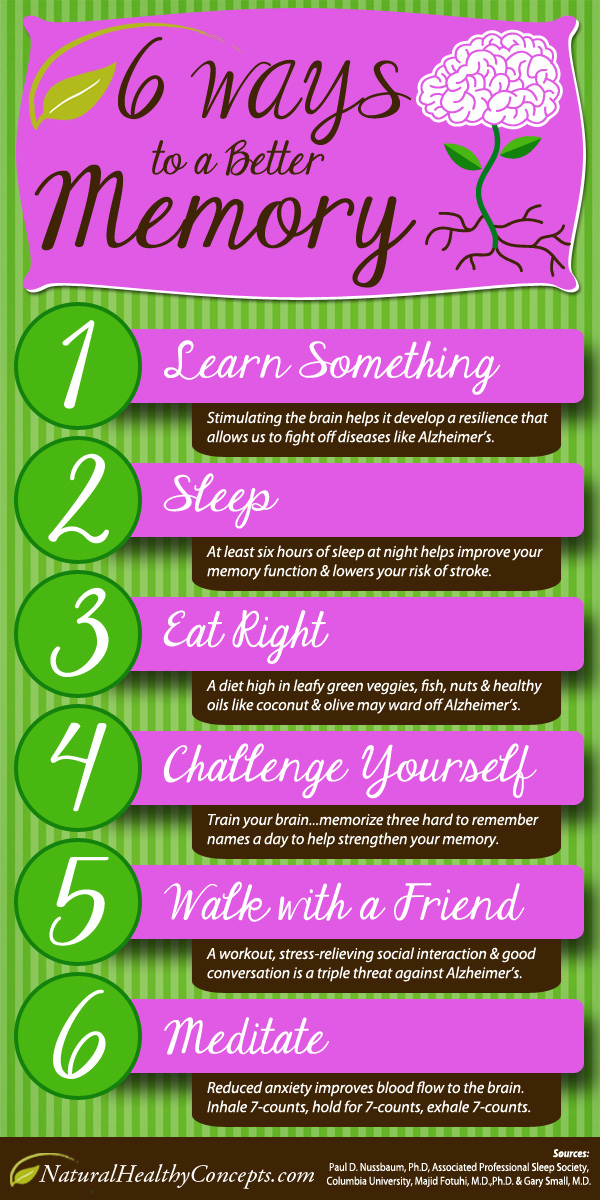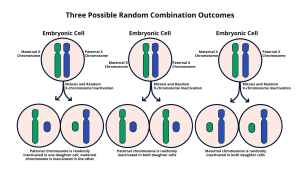Memory Improvement Tips: Boost Your Recall Skills Today
Are you looking for effective memory improvement tips that can enhance your recall skills? It’s common to feel frustrated when you encounter moments of forgetfulness, especially in crucial situations like meeting new people or studying for exams. To help you navigate these challenges, brain experts have shared research-backed strategies designed to boost memory retention and optimize cognitive function. By incorporating brain exercises and memory techniques into your daily routine, you’ll be better equipped to improve your memory and recall strategies. Explore these insights and transform your approach to learning and remembering!
When it comes to enhancing your cognitive performance, there are various strategies to enrich your ability to remember crucial information. Techniques like memory training, cognitive exercises, and systematic recall practices can lead to substantial benefits in mental agility. Whether you’re seeking ways to refine your skills, optimize your learning potential, or overcome memory lapses, leveraging these methods allows for a significant increase in memory efficiency. With the right approach, you can master the art of recollection and ensure that important details stay at the forefront of your mind. Unleashing the power of your memory isn’t just a wish; it’s entirely within your reach.
Understanding Memory Functionality
Memory is a complex cognitive process that allows us to encode, store, and retrieve information. Neuroscience studies suggest that memory retrieval is a reconstructive process, meaning that each recall can alter our memories. Understanding how memory works is the first step to improving it. Factors such as attention, sleep, and emotional state significantly impact our ability to retain information, highlighting the need for effective memory techniques.
Recent research indicates that engaging different areas of the brain can enhance memory function. For instance, activities that promote brain exercise, such as puzzles or learning new skills, stimulate neural connections, leading to better memory retention. Implementing effective learning strategies can amplify your brain’s capability to not only remember but also adapt and apply knowledge in various contexts.
Memory Improvement Tips
Improving your memory doesn’t require a vast overhaul of your daily habits; simple adjustments can yield significant results. Incorporating memory techniques such as the mnemonic devices can enhance your ability to memorize information swiftly. For instance, associating complex information with vivid imagery can help make details more memorable.
Regular physical exercise has also been shown to boost memory retention. Engaging in aerobic activities increases blood flow to the brain and stimulates the release of growth factors that enhance neural health. Additionally, ensuring adequate sleep is crucial; it is during sleep that your brain consolidates memories, making it essential for long-term retention.
Effective Memory Recall Strategies
When it comes to memory recall strategies, the method of loci stands out as a powerful technique. This ancient memory palace method involves visualizing familiar places and associating each location with items you wish to remember. By walking through these places in your mind, you can retrieve information more easily, making it effective for everything from names to complex concepts.
Another effective strategy is to practice spaced repetition, which involves revisiting information at increasing intervals. This method leverages the brain’s inherent learning processes, reinforcing memory while preventing overload. Combining these strategies with brain exercises, such as learning a new language or musical instrument, can provide substantial improvements in your overall cognitive function and memory capabilities.
The Role of Stress on Memory Performance
Stress can significantly influence memory performance, often impairing one’s ability to recall information. When under stress, your body’s fight-or-flight response is activated, which can either enhance or hinder memory, depending on the situation. Acute stress may aid in recalling crucial information quickly, while chronic stress is detrimental to memory health, leading to cognitive decline.
Mindfulness and relaxation techniques, such as deep breathing and meditation, can mitigate the adverse effects of stress on memory. These practices not only help in reducing anxiety but also enhance focus and attention, proving beneficial for memory retention and recall. Integrating such practices into your daily routine can foster a more conducive environment for mental clarity and memory improvement.
Maintaining Mental Agility Through Lifelong Learning
Engaging in lifelong learning activities is essential in maintaining mental agility and improving memory. Lifelong learning not only keeps the brain active but also encourages neuroplasticity, the brain’s ability to form new connections. Activities such as reading, taking up new hobbies, or attending workshops can stimulate cognitive function and enhance memory recall.
Additionally, social interactions play a crucial role in mental vitality. Staying socially active challenges the brain and helps reinforce memory through discussions and shared experiences. Connection with others provides not just emotional support but also cognitive engagement, which is vital for long-term memory health.
Nutrition’s Impact on Memory and Cognitive Function
What you eat profoundly impacts your brain health and memory capabilities. Diets rich in antioxidants, healthy fats, vitamins, and minerals nourish brain cells and support cognitive function. Foods such as blueberries, fatty fish, and leafy greens have been linked to improved memory and brain performance.
Hydration is equally important; even mild dehydration can impair concentration and short-term memory. Incorporating a balanced diet with adequate hydration ensures your brain has the necessary resources to function optimally, thus enhancing memory retention and recall.
Leveraging Technology for Memory Enhancement
In the digital age, technology plays a pivotal role in enhancing our memory. Numerous apps and digital tools designed for memory improvement, such as flashcards or spaced repetition software, help users organize and recall information more effectively. These tools utilize proven memory techniques tailored to personal learning styles.
Moreover, online platforms provide vast resources for learning new skills and concepts. Engaging with these technologies can stimulate the brain, challenging it to adapt and grow, ultimately boosting memory retention and overall cognitive abilities.
Sleep: The Unsung Hero of Memory Consolidation
Sleep has long been recognized as vital for cognitive health, especially in relation to memory consolidation. During sleep, the brain converts short-term memories into long-term ones, strengthening neural connections essential for memory recall. Therefore, prioritizing a good night’s sleep can significantly benefit your memory performance.
Disruptions in sleep patterns can lead to forgetfulness and cognitive decline. Thus, maintaining healthy sleep hygiene, such as establishing a bedtime routine and creating a sleep-friendly environment, is crucial for preserving memory function. By ensuring adequate quality sleep, you can optimize your memory capabilities.
Combating Memory Loss with Practical Exercises
Combatting memory loss can be effectively addressed through regular mental exercises. Engaging in puzzles, crosswords, and memory games challenges the brain, promoting neural activity. These activities enhance cognitive function and equip you with the tools necessary for better memory retention.
Furthermore, trying to memorize poetry, quotes, or even shopping lists without writing them down can serve as excellent practice. It encourages active engagement with the material, promoting deeper processing and better recall. Integrating these types of exercises into your daily routine can significantly bolster your memory capabilities over time.
Frequently Asked Questions
What are some effective memory improvement tips to enhance recall?
To enhance your memory recall, consider using memory techniques like the method of loci, where you visualize spatial locations to anchor your memories. Regular brain exercises such as puzzles and memory games can also boost memory retention. Additionally, maintaining a healthy lifestyle with regular physical exercise and good sleep hygiene significantly improves your brain’s function.
How can I improve memory using brain exercise?
Brain exercises like solving puzzles, playing memory games, or engaging in activities that challenge your cognitive skills can significantly improve memory. These activities stimulate neuron connections, which are crucial for memory retention. Incorporate daily brain exercises for best results.
What are some popular memory techniques for better retention?
Popular memory techniques include mnemonics, visualization, and storytelling. Mnemonics help you remember information by associating it with an easy-to-recall phrase or image. Visualization involves turning data into vivid images, while storytelling helps contextualize information, making it easier to remember.
What are memory recall strategies to help during exams?
Effective memory recall strategies during exams include spaced repetition, active rehearsal, and using the memory palace technique. Spacing out your study sessions helps reinforce information over time. Active rehearsal, where you actively recall information rather than passively reviewing, strengthens memory retention.
Can physical exercise really boost memory retention?
Yes, physical exercise has been shown to boost memory retention significantly. Engaging in regular aerobic activities increases blood flow to the brain and promotes the production of growth factors that support memory formation and overall brain health.
How does sleep affect memory improvement?
Sleep plays a crucial role in memory improvement. It is during sleep that your brain consolidates and organizes information learned during the day. Lack of sleep impairs cognitive function and hinders memory recall, making quality sleep essential for optimal memory performance.
What lifestyle changes can help improve memory?
To improve memory, adopt a brain-healthy lifestyle that includes regular physical activity, a balanced diet rich in omega-3 fatty acids, sufficient sleep, and stress management techniques. Avoid substances like excessive alcohol and cannabis, which can impair memory.
What is the method of loci and how does it improve memory?
The method of loci, also known as the memory palace technique, improves memory by associating information you want to remember with specific locations in a familiar setting. This spatial association makes recall easier and more effective, especially when dealing with complex information.
What impact does multitasking have on memory retention?
Multitasking negatively impacts memory retention because it divides your attention and reduces your ability to fully engage with the information. Focusing on one task at a time is more effective for improving memory and recall.
How can I remember names better at social gatherings?
To remember names better at social gatherings, try repeating the person’s name when you are introduced. Visualize the name alongside their face, and consider creating a mental image or association to reinforce the connection. Avoid distractions to enhance your focus on the conversation.
| Key Points | Details |
|---|---|
| Memory Improvement Tips | Practicing regularly, such as one hour per day, enhances skill mastery. |
| Physical Exercise | Regular exercise can improve memory and brain function. |
| Memory Retrieval | Retrieving a memory can alter it, making it important to treat memories with care. |
| Multitasking | Multitasking can degrade memory performance, particularly when combining verbal tasks. |
| Sleep | Sleep is crucial for memory consolidation and clearing brain capacity. |
| Substances and Memory | Certain substances, such as cannabis, can impair memory. |
| Memory Techniques | The ‘method of loci’ technique involves visualizing a familiar place to anchor memories. |
| Stress and Memory | Stress can heighten the recall of critical information in urgent situations. |
Summary
Memory improvement tips can significantly enhance your ability to recall information when it matters most. Implementing practices such as daily exercise, utilizing effective memory techniques like the ‘method of loci,’ ensuring adequate sleep, and managing multitasking can greatly optimize your memory function. Moreover, understanding how stress affects recall can be crucial for improving your memory retention during important situations. By incorporating these strategies into your routine, you can improve your memory capabilities and therefore enhance your overall cognitive performance.



